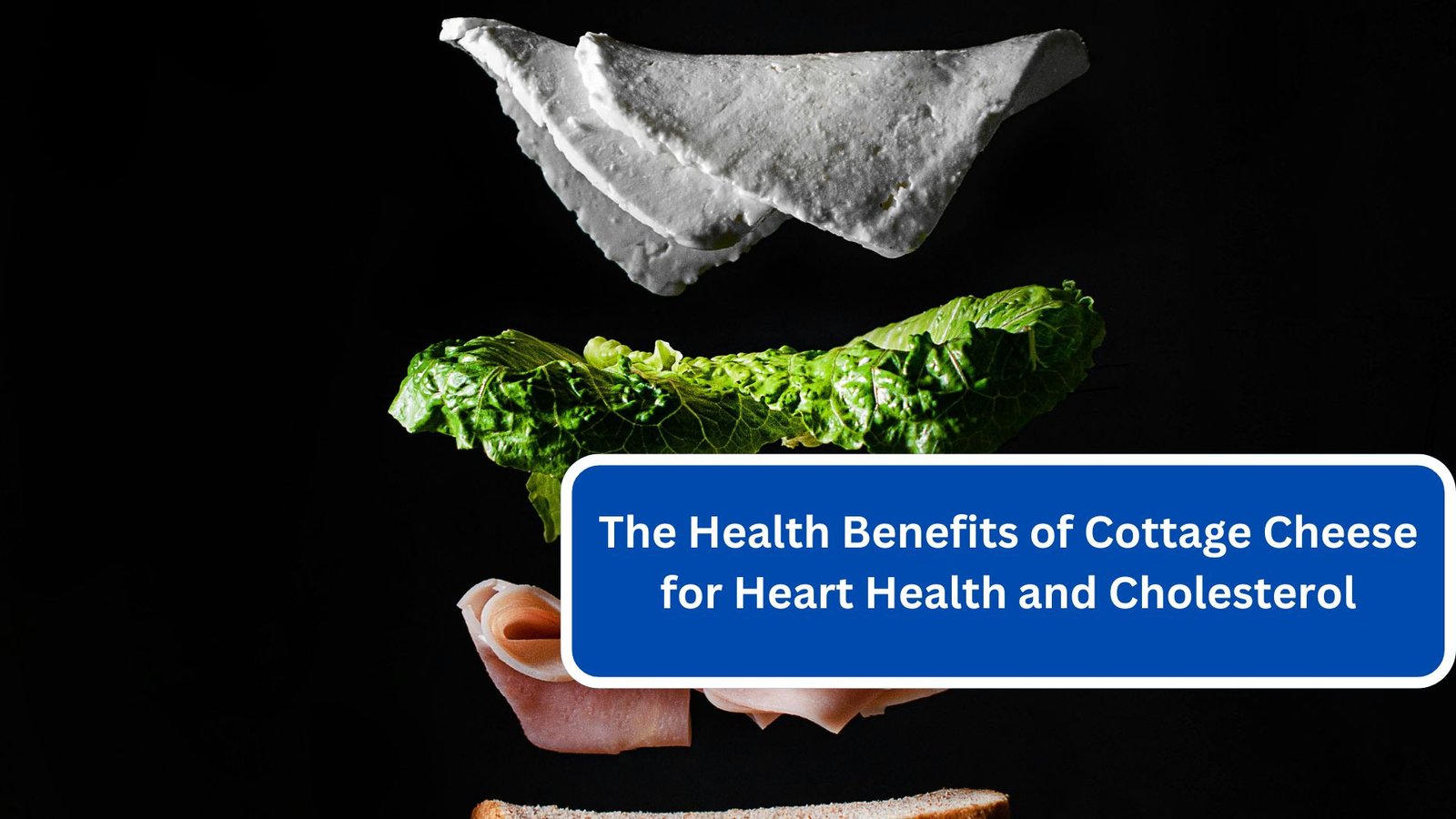Cottage cheese, often regarded as a humble dairy product, is packed with nutrition and offers numerous health benefits, particularly for heart health and cholesterol management. With its creamy texture and mild flavor, it’s a versatile ingredient that can be easily incorporated into a variety of meals and snacks. In this article, we will explore how cottage cheese contributes to cardiovascular health, its role in cholesterol management, and practical ways to include it in your diet.
Nutritional Profile of Cottage Cheese
Cottage cheese is known for its impressive nutritional profile, which includes:
- High Protein Content: A single serving provides a substantial amount of protein, which supports muscle maintenance and satiety.
- Low in Saturated Fat: Depending on the variety, cottage cheese can be low in saturated fat, making it a heart-healthy option.
- Rich in Calcium: This essential mineral plays a crucial role in maintaining bone health and may also support cardiovascular function.
- Source of B Vitamins: Cottage cheese is a good source of B vitamins, including riboflavin and vitamin B12, which are important for energy metabolism.
Heart Health Benefits
Blood Pressure Regulation
One of the critical factors in heart health is blood pressure management. Cottage cheese is a low-sodium food when purchased in its unsalted variety. Diets that are low in sodium can help reduce blood pressure levels. Additionally, the calcium in cottage cheese plays a role in vascular contraction and relaxation, further supporting healthy blood pressure levels.
Heart-Healthy Fats
While some varieties of cottage cheese are low in fat, full-fat versions contain healthy fats that can help improve cholesterol levels when consumed in moderation. These fats can contribute to the overall balance of nutrients in your diet, promoting heart health without excessive calorie intake.
Anti-Inflammatory Properties
Chronic inflammation is a significant risk factor for heart disease. The protein and other nutrients found in cottage cheese may have anti-inflammatory effects, which can help reduce the risk of heart-related conditions over time.
Cholesterol Management
Protein-Packed Choice
Cottage cheese is high in protein, which can be beneficial for weight management. Maintaining a healthy weight is crucial for managing cholesterol levels. Protein-rich foods like cottage cheese can help you feel full longer, reducing the likelihood of overeating.
Low Saturated Fat
As mentioned earlier, many varieties of cottage cheese are low in saturated fat. High saturated fat intake is linked to increased levels of LDL (bad) cholesterol. Choosing low-fat or non-fat cottage cheese can help you maintain healthier cholesterol levels while still providing essential nutrients.
Versatility in Diet
Cottage cheese can be easily incorporated into a heart-healthy diet. Its versatility allows it to be used in various dishes, from salads and smoothies to baked goods. By replacing higher-fat ingredients with cottage cheese, you can create meals that are lower in cholesterol and saturated fat.
Practical Ways to Include Cottage Cheese in Your Diet
Breakfast Options
Start your day with a nutrient-packed breakfast by adding cottage cheese to your morning routine. It can be mixed with fruits, nuts, or seeds to create a balanced meal that fuels your day.
Snacks
Cottage cheese makes for a quick and healthy snack. Pair it with whole-grain crackers, or add a drizzle of honey for a touch of sweetness. You can also blend it into smoothies for an extra protein boost.
Salads and Dishes
Incorporate cottage cheese into salads, using it as a base for a creamy dressing or as a topping. It can also be added to pasta dishes or casseroles for added protein and creaminess without the extra fat.
Baking
Substitute cottage cheese for higher-fat ingredients in baking recipes. It can be used in muffins, pancakes, or bread to increase protein content while keeping calories in check.
Conclusion
Cottage cheese is more than just a simple dairy product; it is a heart-healthy food that offers numerous benefits for cholesterol management and overall cardiovascular health. With its high protein content, low saturated fat levels, and rich nutrient profile, cottage cheese can be a valuable addition to a heart-healthy diet.
Incorporating cottage cheese into your meals can help support heart health while providing delicious and versatile options for breakfast, snacks, and main dishes. Whether you enjoy it plain or as part of a recipe, cottage cheese is a smart choice for those looking to prioritize their cardiovascular well-being.

